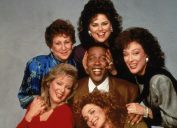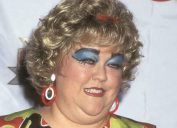This "Designing Women" Star Compared the Show to War: "An Awful Lot of Bad Times"
Delta Burke left the comedy series amid a great deal of public drama in 1991.
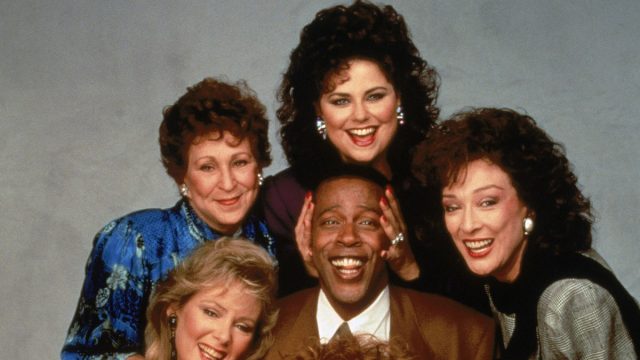
After Designing Women, the groundbreaking sitcom about a women-run interior design firm, premiered in 1986, Delta Burke became the breakout star and went on to be nominated for two Emmys for her role as Suzanne Sugarbaker. But, after the fifth season of the Georgia-set comedy in 1991, Burke was fired from the series. Around this time, both Burke and the series' producers shared their sides of the story about why she was let go. In one interview, the actor even claimed that being on the show was like "putting in five tours of duty of Vietnam."
Over time, Burke, now 65, and Designing Women executive producers Harry Thomason and Linda Bloodworth-Thomason—the latter of whom also created the show—found their way to a friendly relationship once again. But, when they were in a bad place, they definitely didn't hold back about it. Read on to find out more about all the drama surrounding Designing Women.
READ THIS NEXT: See Designing Women Star Delta Burke Now at 65.
They went after each other in the press.
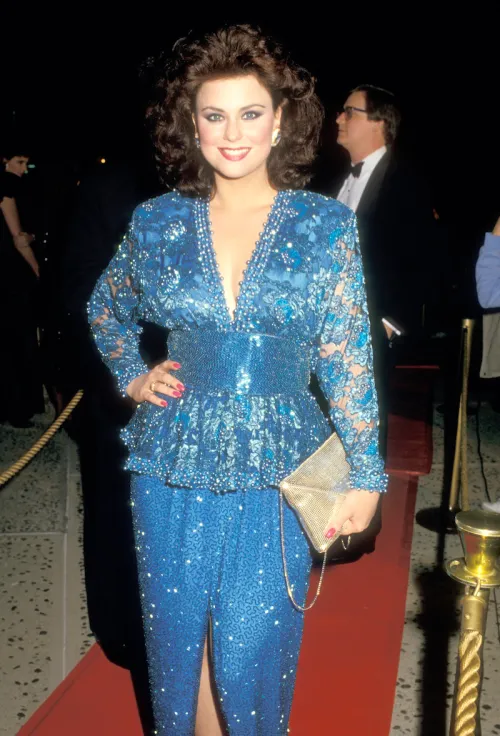
Starting in 1990, Burke and the Thomasons had a huge back-and-forth in the press that was kicked off when Burke told the Orlando Sentinel (via the Los Angeles Times) that she hadn't "wanted to be there [on the show] for some time now." She continued, "It is not a good workplace, not a good environment."
Harry Thomason then released a 12-page rebuttal, as reported by People, in which he explained that Burke was the one who was causing issues on set. Burke replied with a four-page-long comment and accused the producing couple of emotional and physical abuse.
"They wanted me thinner, even before I really put on any weight," Burke told People. She also claimed "emotional and sometimes physical abuse—locking you in a room and throwing things at you." According to the Los Angeles Times, the Thomasons denied all of Burke's claims, other than admitting that Harry had occasionally yelled on the set.
TV Guide reports that during all of this, Burke also fell out with her co-star Dixie Carter, who played Suzanne's sister Julia, because Carter defended the Thomasons.
Some claimed she changed after marrying her husband.
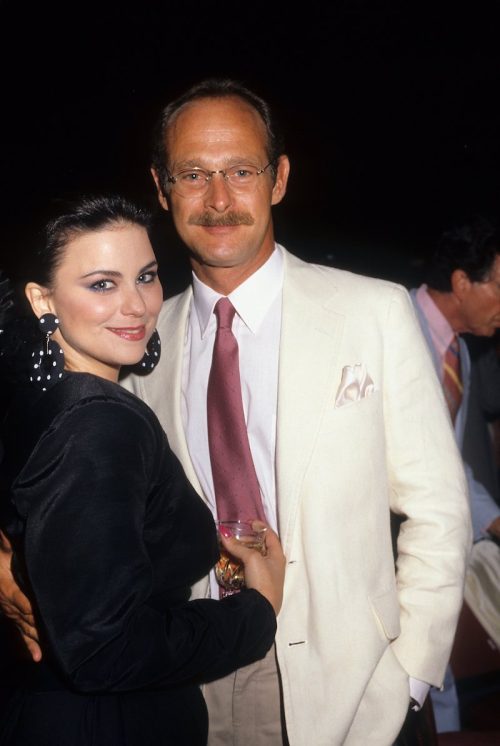
According to TV Guide, some people involved in the show thought that Burke became a different person after getting together with her husband, actor Gerald McRaney, who she married in 1989. McRaney and Burke began dating after he played one of Suzanne's ex-husbands on the show.
In 1992, producer Doug Jackson told TV Guide, "Immediately after Delta started dating Gerald, there was a marked change in her relationship with all of us. She was a fun, kicky girl at the start. After Gerald came on the scene, she came on the set one day to announce to the cast, 'Gerald says I am the star of the show and I should be boss."
For more celebrity news delivered right to your inbox, sign up for our daily newsletter.
Burke sued the producers.
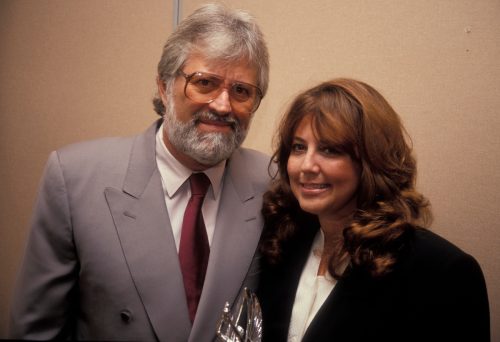
As reported by the Associated Press, in January 1991, Burke sued the Thomasons and Columbia claiming that she was written out of an episode as a form of revenge for criticizing them, which she said invalidated her contract. Later that year, she was fired from the show.
Burke said she was treated as "the fall guy."
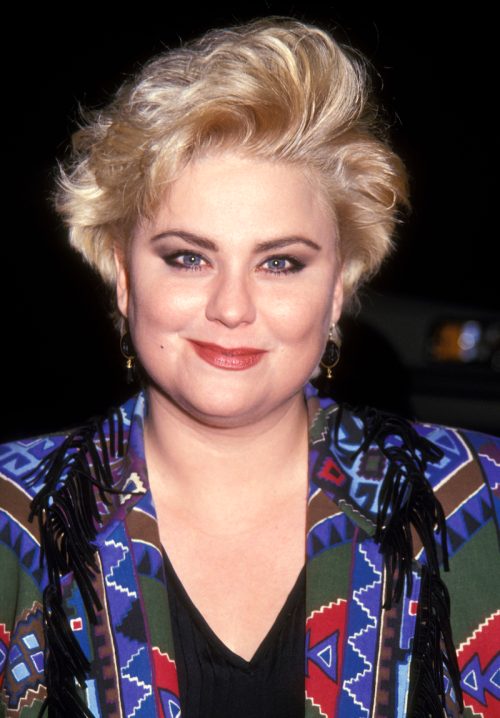
In 1992, Burke gave an interview to Deseret News, in which she spoke out about leaving Designing Women.
"There's still a lot of emotion there. A lot of frustration and anger. I felt very much the fall guy," she said.
"If you are in a work environment where the situation is so bizarre that people don't believe you, it's like Martians landing. It's hard for people to understand because it didn't make any sense," she continued. "Basically, it became unbearable into the second season for me. By the end of the fourth season, I just couldn't live like that anymore. I went to the network and studio to ask help from people who had power to intervene because it had reached an explosive situation, and they didn't do that."
She then compared working on the show to war. "There were a lot of good times, but there were an awful lot of bad times that didn't have to happen," she explained. "Basically, it was like putting in five tours of duty of Vietnam. You have to be patient and persevere—that's why I named my [production] company Perseverance."
Burke and the producers eventually reconciled.
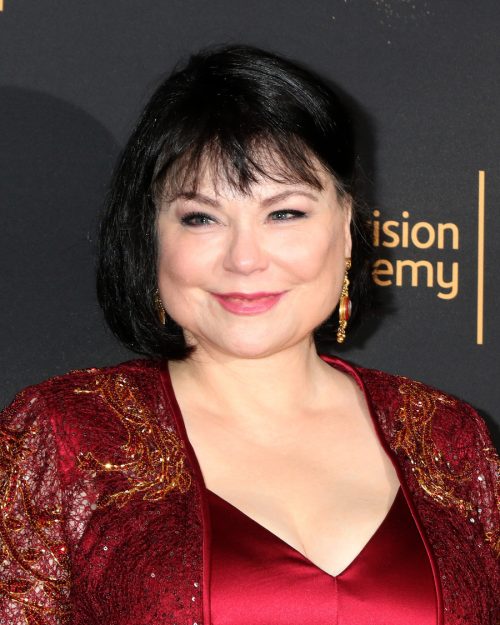
Burke and the Thomasons made up, and by 1995, they were working together again. Burke starred on the producers' Designing Women spinoff series, Women of the House, which aired for just one season. The Los Angeles Times reported from the show's set in 1995, saying that both the Thomasons and Burke blamed their past issues on miscommunications and the involvement of third parties.
Carter and Burke also made up in time. Burke guest-starred on Carter's show Family Law, attended a Designing Women reunion panel with her, and was at Carter's funeral in 2010, according to Nicki Swift.
